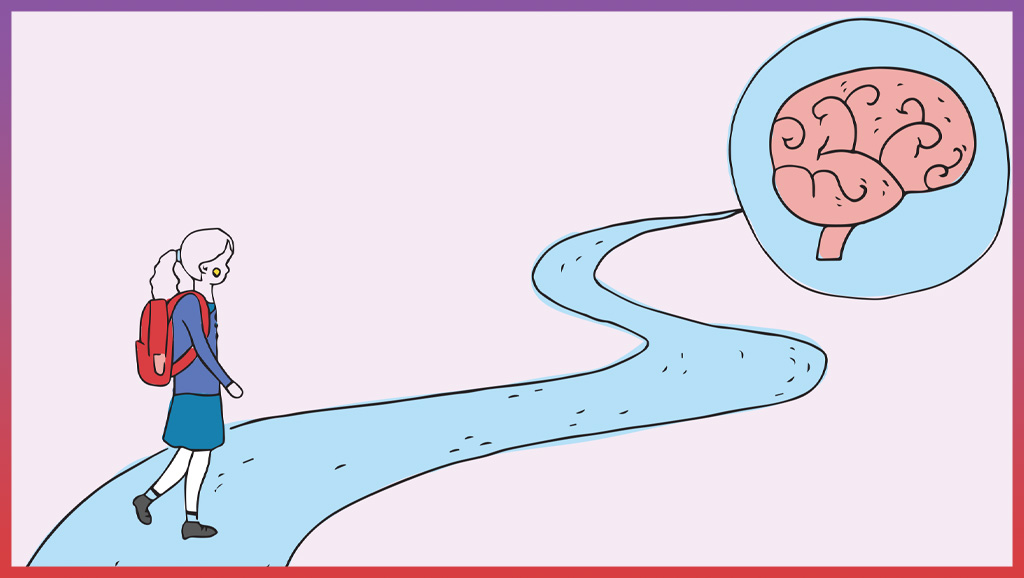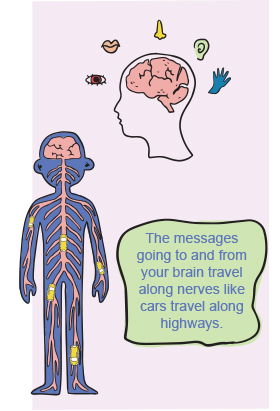Fact Sheet
How Does the Brain Work (Grades 3-5)
Who this is for:

Have you ever wondered what is inside your head? It’s your brain! You may have heard that the brain is one of your most important body parts. Sometimes teachers tell you to use your brain to think about a homework assignment or solve a math problem. Your brain is what allows you to think, learn, and solve problems. It also allows you to learn how to solve a problem one day and remember how to solve it the next day. When you memorize a multiplication table, your brain is doing all the work. What you may not know, however, is that your brain does a lot more than memorize facts. It also helps you explore the world around you.
Let’s take a look at how our brains help us take a walk. When you are walking, your brain has a big job. First, it helps you move your muscles. It also helps you see where you are going and allows you to smell both good and bad smells along your way.
What if you’re walking in the sun and begin to feel hot? Your brain senses that you need to cool down, and you might want to remove a jacket. Finally, your walk comes to an end because you hear your mom or dad calling you back home. You can hear their voices because of your brain! Can you believe how important your brain is to take a simple walk? It controls the five main senses: seeing, smelling, touching, tasting, and hearing. But how does such a small body part do so much?

Here’s how it works: Your body collects information, like sights and sounds, from the outside world through the five senses. This information travels to the brain along pathways called nerves. When you think about information traveling along nerves, imagine cars traveling along highways. Just like cars travel to and from their destinations on highways, information travels to and from your brain and other parts of your body along nerves. Without your nerves, the information would not know how to get to your brain.
Once the messages reach your brain, your brain begins to process them. The brain has many different parts that control very specific things like memory or your muscles. Many areas work together and communicate with each other to make sense of the incoming messages. The brain also sends information back to the nerves. For instance, in the earlier example of a walk, your brain receives a message from your nerves that you are too hot and need to cool down. Your brain will process this information and will send a message back down another set of nerves that tell you to remove your jacket. Brains, just like other body parts, can get hurt and need to stay healthy. It is important to protect your brain by wearing seat belts, helmets, and being careful not to hit your head.
Keeping your brain healthy means getting plenty of sleep, studying, and eating your fruits and vegetables! Finally, it is important to know that your brain never stops learning and changing. Just like a muscle, if you work it out, your brain can grow and stay healthy.